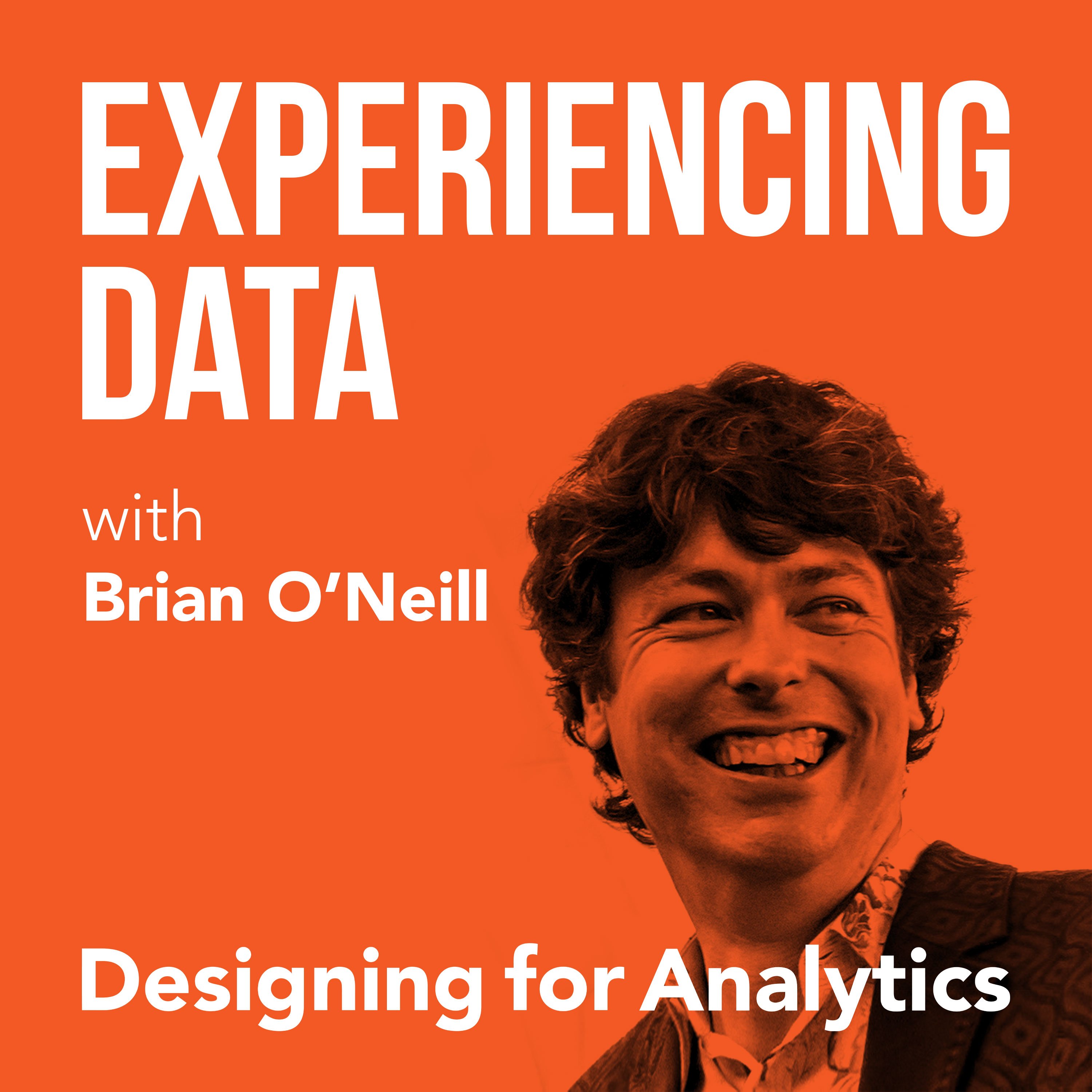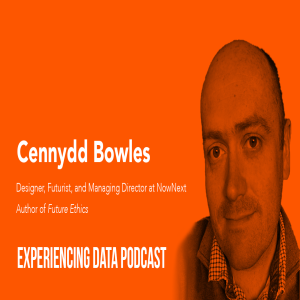

141.5K
Downloads
173
Episodes
Is the value of your enterprise analytics SAAS or AI product not obvious through it’s UI/UX? Got the data and ML models right...but user adoption of your dashboards and UI isn’t what you hoped it would be? While it is easier than ever to create AI and analytics solutions from a technology perspective, do you find as a founder or product leader that getting users to use and buyers to buy seems harder than it should be? If you lead an internal enterprise data team, have you heard that a ”data product” approach can help—but you’re concerned it’s all hype? My name is Brian T. O’Neill, and on Experiencing Data—one of the top 2% of podcasts in the world—I share the stories of leaders who are leveraging product and UX design to make SAAS analytics, AI applications, and internal data products indispensable to their customers. After all, you can’t create business value with data if the humans in the loop can’t or won’t use your solutions. Every 2 weeks, I release interviews with experts and impressive people I’ve met who are doing interesting work at the intersection of enterprise software product management, UX design, AI and analytics—work that you need to hear about and from whom I hope you can borrow strategies. I also occasionally record solo episodes on applying UI/UX design strategies to data products—so you and your team can unlock financial value by making your users’ and customers’ lives better. Hashtag: #ExperiencingData. JOIN MY INSIGHTS LIST FOR 1-PAGE EPISODE SUMMARIES, TRANSCRIPTS, AND FREE UX STRATEGY TIPS https://designingforanalytics.com/ed ABOUT THE HOST, BRIAN T. O’NEILL: https://designingforanalytics.com/bio/
Episodes

Tuesday Mar 24, 2020
Tuesday Mar 24, 2020

Cennydd Bowles is a London-based digital product designer and futurist, with almost two decades of consulting experience working with some of the largest and most influential brands in the world. Cennydd has earned a reputation as a trusted guide, helping companies navigate complex issues related to design, technology, and ethics. He’s also the author of Future Ethics, a book which outlines key ethical principles and methods for constructing a fairer future.
In this episode, Cennydd and I explore the role that ethics plays in design and innovation, and why so many companies today—in Silicon Valley and beyond—are failing to recognize the human element of their technological pursuits. Cennydd offers his unique perspective, along with some practical tips that technologists can use to design with greater mindfulness and consideration for others.
In our chat, we covered topics from Cennydd’s book and expertise including:
- Why there is growing resentment towards the tech industry and the reason all companies and innovators need to pay attention to ethics
- The importance of framing so that teams look beyond the creation of an “ethical product / solution” and out towards a better society and future
- The role that diversity plays in ethics and the reason why homogenous teams working in isolation can be dangerous for an organization and society
- Cennydd’s “front-page test,” “designated dissenter,” and other actionable ethics tips that innovators and data product teams can apply starting today
- Navigating the gray areas of ethics and how large companies handle them
- The unfortunate consequences that arise when data product teams are complacent
- The fallacy that data is neutral—and why there is no such thing as “raw” data
- Why stakeholders must take part in ethics conversations
Resources and Links:
Future Ethics (book)
Quotes from Today’s Episode
“There ought to be a clearer relationship between innovation and its social impacts.” — Cennydd
“I wouldn’t be doing this if I didn’t think there was a strong upside to technology, or if I didn’t think it couldn’t advance the species.” — Cennydd
“I think as our power has grown, we have failed to use that power responsibly, and so it’s absolutely fair that we be held to account for those mistakes.” — Cennydd
“I like to assume most creators and data people are trying to do good work. They’re not trying to do ethically wrong things. They just lack the experience or tools and methods to design with intent.” — Brian
“Ethics is about discussion and it’s about decisions; it’s not about abstract theory.” — Cennydd
“I have seen many times diversity act as an ethical early warning system [where] people who firmly believe the solution they’re about to put out into the world is, if not flawless, pretty damn close.” — Cennydd
“The ethical questions around the misapplication or the abuse of data are strong and prominent, and actually have achieved maybe even more recognition than other forms of harm that I talk about.” — Cennydd
“There aren’t a whole lot of ethical issues that are black and white.” — Cennydd
“When you never talk to a customer or user, it’s really easy to make choices that can screw them at the benefit of increasing some KPI or business metric.” — Brian
“I think there’s really talented people in the data space who actually understand bias really well, but when they think about bias, they think they’re thinking more about, ‘how is it going to skew the insight from the data?’ Not the human impact.” — Brian
“I think every business has almost a moral duty to take their consequences seriously.” — Cennydd
No comments yet. Be the first to say something!